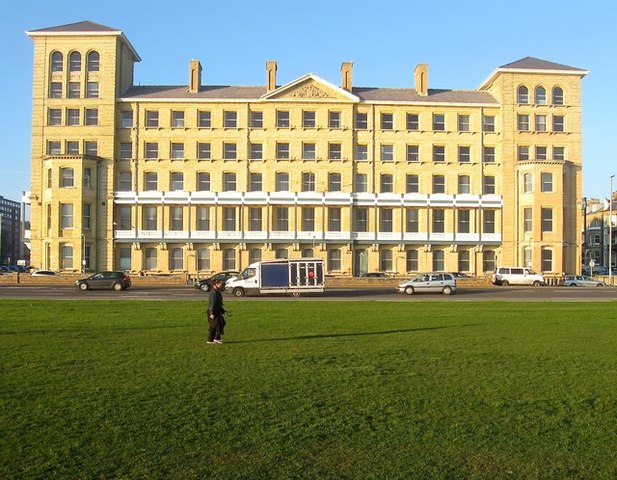Proposals for Brighton and Hove City Council’s 2022-23 budget have now been published.
While there is a huge amount there to be proud of – such as £2.7 million more for adult physical disability services, £1.8 million for adult learning disability services, £43,000 for adult mental health services and £2.8 million for children’s social care – there is also a huge amount of pain.
The investments we are making in social care are a necessity due to increases in demand for services but they come at the cost of many other services which are squeezed as never before.
In the dying days of last year, the government announced the “Local Government Finance Settlement”, the annual notice of the allocations of council funding that will be given for the following financial year.
This much-anticipated announcement gives the council the information we need to set the following year’s budget.
The only problem is that every year the money awarded to local councils isn’t enough to fund all the services that councils provides – not by a mile.
And now, with demand for services soaring, inflation running at more than 5 per cent and several big challenges such as the ongoing pandemic and the climate emergency, the recent settlement simply does not come close to what is needed.
So what can we do about it?
Action on council budgets
First, we look for ways to do things more efficiently. Is there new software, equipment or training that enables the service to be provided to a higher quality or at a lower price? Is there a new structure that will make the service more efficient? Can the same team provide more than one service? Can the same manager manage more than one service? Can the same building house more than one service?
There are several examples of where council services have been merged or restructured – and the council’s modernisation programme that deals with this has touched on almost every area of the council’s work.
The council has been looking for ways to invest in better equipment, software and training to provide services at a higher quality and lower cost.
Much of this modernisation programme has been funded by the sale of King’s House – and every time we reduce further the number of operational council buildings, we save money on maintenance, heating, electricity and so on, as well as reducing the council’s carbon footprint.
However, we are acutely aware that this can only go so far, and we cannot continue to ask public service staff to do more with less, every year.

Secondly, we look at what we call “spend to save” initiatives. These are investments we make to bring down the cost of things in future years.
We must take a long-term view and look not just at next year’s budget but future years too.
This means planning for both the medium term (two to five years) and the long term (five to 50 years).
Every year we are benefiting from investment decisions taken in years gone by. There are “spend to save” initiatives in almost every council area, from social care to transport, children’s services and waste management.
Each year we invest significant sums of money in preventative services – to stop problems worsening, improve people’s lives and enable them to live independently in their own homes for as long as possible.
Such work also avoids more expensive placements that are needed for people with higher needs.
Thirdly, we look for income generation opportunities. Council tax raises only about 18 per cent of the council’s budget, with ring-fenced grants, business rates, fees and charges making up the rest.
Income from services is therefore a critically important part of the council’s budget, without which many crucial services for residents would be impossible to deliver.
Cuts affecting councils everywhere
Income comes from many different areas, such as rents, parking and a growing number of back-office services that the council provides to other public bodies.
The council looks to maximise its income in as many areas as it can to ensure it can fund as many public services to support residents as possible.
Given the rising demand for local services that support vulnerable adults and children – particularly since the pandemic – the challenge of meeting needs is acute.
It’s estimated that soaring demand to help safeguard children, for example, will see pressure on social care services increase by an estimated £600 million a year alone, according to the Local Government Association.
The council aims every year to maximise efficiency savings, “spend to save” initiatives and income generation as much as it can to ensure funding is available and to reduce the number of services at risk of cuts each year.
However, even with all these measures, the scale of the problem is such that the council still cannot fund all the same services, to the same extent, as it did last year.

It is against this backdrop that very reluctantly, every year councillors have to go through the horrible process of prioritising services to protect and identifying those which could be reduced, provided more cheaply or stopped altogether.
It shouldn’t be like this. After 11 years of austerity, we’re getting to the point where the only services left are either statutory or preventative.
The forecast budget gap (the difference between expected income and expenditure) started off at £18 million. Following months of work there remains a gap of just under £2 million.
Other councils are facing the same dilemma: Manchester is looking at an £85 million budget shortfall in the next three years. Essex faces a £100 million shortfall and, sadly, the list goes on.
The situation that local councils are put in year after year is unsustainable. We’ve reached the end of the road of austerity and there is nowhere left to go.
Reform is the only way to ‘level up’
This week we are writing to Michael Gove, the Levelling Up Secretary, pressing for an urgent conclusion of the “fair funding” review that the government started in 2017 and that is still incomplete.
We’re also pushing for long-awaited reforms to social care funding and council tax.
Despite talk of “levelling up”, council tax remains a key plank of the government approach to local funding – but we are clear that it is a regressive tax, designed for an era when properties were worth a fraction of what they are now.
For low-income households, council tax represents a far higher proportion of expenditure than for those on higher incomes.
However, for all the talk of “sharing prosperity”, the government is doing nothing to reform council tax, or council funding in general, and while the government dithers, communities suffer.
Green Party policy is to get rid of council tax altogether and replace it with a land value tax, widely supported by economists to be both progressive and efficient, taxing land ownership rather than building occupation.
This, along with a “universal basic income”, would truly “level up” the country, reducing inequality and providing a sustainable long-term solution to local council finance to enable the proper funding of local services.

Caroline Lucas MP has tabled an “early day motion” (no 775) calling on the government to address local authority funding and ensure a sustainable future for services local councils provide to communities. We urge all the city’s MPs to support it.
Councils up and down the country are on their knees, with three having already declared bankruptcy.
This is a wake-up call that the government cannot afford to miss. Public services deserve fair funding. Austerity has failed. It’s time for something different.
Councillor Tom Druitt is the Green co-finance lead on Brighton and Hove City Council.










Does that mean the council will cut the £500,000 the Greens allocated to critical race training in schools?
Among others, Finland tried the UBI.
None have it in place today. Wonder why that is.
Meanwhile the Greens in Brighton call for it.
Anything being done about graffiti, drunks and druggies in doorways, emptying bins, you know the normal stuff you should be looking at?
Nah, thought not.
Cllr Druitt. The first rat to leave the sinking Green ship.
Tom – just shut up and go . . . The Greens are an utter disgrace
Actually Mike, it’s you that’s the utter disgrace. For one, you don’t know what you’re on about; you have just proved an astonishing level of ignorance. Secondly, you personally are the reason for continually approving for the utter disintegration of all of our public services by voting Tory at the General Election. So you don’t actually have the right to comment.
Meanwhile, back in the real world, there is a high probability of the Green Party strengthening its necessary hold on the city, in order to stop the planet-wrecking Blue Labour and Tories from clogging up the city with their pollution – all in the name of winning a few votes.
Seeing as you’re part of the problem rather than the solution, it’s best you leave this brilliant city now, mainly because your point of view has no validity, and no-one cares what you think.
Well done for proving the Greens broker no alternative views.
Red Fascism is well known in Russia and China, but you are now proving that Green Fascism is a new phenomenon and alive in Brighton.
Fortunately, democracy is still alive and well and people can vote for who they think is best for them.
Green group think is not the way. That was in 1984.
Keep it coming, so people will remember in a year’s time.
You are doing your utmost to ensure a wipeout of the Greens.
And here we have the perfect example of the nasty green fascist. Those who dare disagree must be stripped of their right to comment, disenfranchised, idendefied as a ‘problem’ and forced into some kind of exile (a re-eductation camp, perhaps?)
Keep the comments coming, AI. You’re doing a great job in exposing green fascism.
Al
Very interesting comments.
In regards to your personal attack on Mike, can you explain how he is personally the reason for disintegration of all of our public services. Last time I checked, the Greens ran Brighton Council, we’ve not had a tory led council since 2011.
So because Mike votes differently from you or me, why doesn’t he have the right to comment ?
We didn’t vote for the ‘Greens’ to run our our city so perhaps you greenies shouldn’t comment either! And you have the audacity to call out ignorance !!!
You are miles away from the real world IMO, there is a high probability of the Green Party disappearing completely.
The damage they have caused to this city is criminal, they create more pollution with pointless vanity projects thinking the only solution is walking and cycling that hardly caters for the majority of residents some who would like to see better bus services that incidentally, are recording longer journey times due to delays caused by successions of so called ‘Road Improvement schemes’.
If you think consistent missed refuse and recycling collections, dirty streets, graffiti, over grown hedges, damaged pavements, broken lights, and a string of other offences will encourage and win voters you’re very much mistaken.
Greens actions in this city, are part of the problem rather than the solution, it’s best they leave this city and leave it to a party who can deliver basic services we all pay for.
Hilarious, and very revealing. I have never voted Tory, and actually voted Green once – never again!
Your reply underscores the infantile and simply torrid way enemies of the Green Dictatorship are treated. Let’s see how many of the current Green zealot councillors run again in 2023, and how many get re-electes
The problem is we need to live within our means, (as a country), and if we want better local services we need to pay more tax. The council could raise the Council tax beyond 1.99% if they gained consent via a referendum. We all know they would never get a majority, (not even close). There in lies the problem we all want better services but are not willing to pay. Yes a wealth tax at national level, via government might help but would they see local government worthy of additional funds – millions has been wasted by the recent administrations through their own doing H2ST, Parking money loss etc. Don’t get me wrong central government is as much a money waster, (just look at the billions wasted in PPE), but we all need to look in the mirror are we willing to pay more or are we not?
The green’s are currently paying a single individual £100k a year for rewilding, this person is a relative of a green councilor.
I for one will lament the loss of Tom Druitt. Despite his green leanings he is a sound businessman and has skills seemingly sorely lacking from the rest of the green administration. I am also fed up with hearing about the 10 years of alleged short changing from central government. Will it still be the same mantra in 20 years ?
The other “elephant in the room” is what will happen when the i-360 debt crystallizes ? or has the council got a contingency for this ? I recall Tom Druitt looked at the finances for this a while back and his recommendation to see a proper business recovery plan before deferring more repayments was ignored by the council.